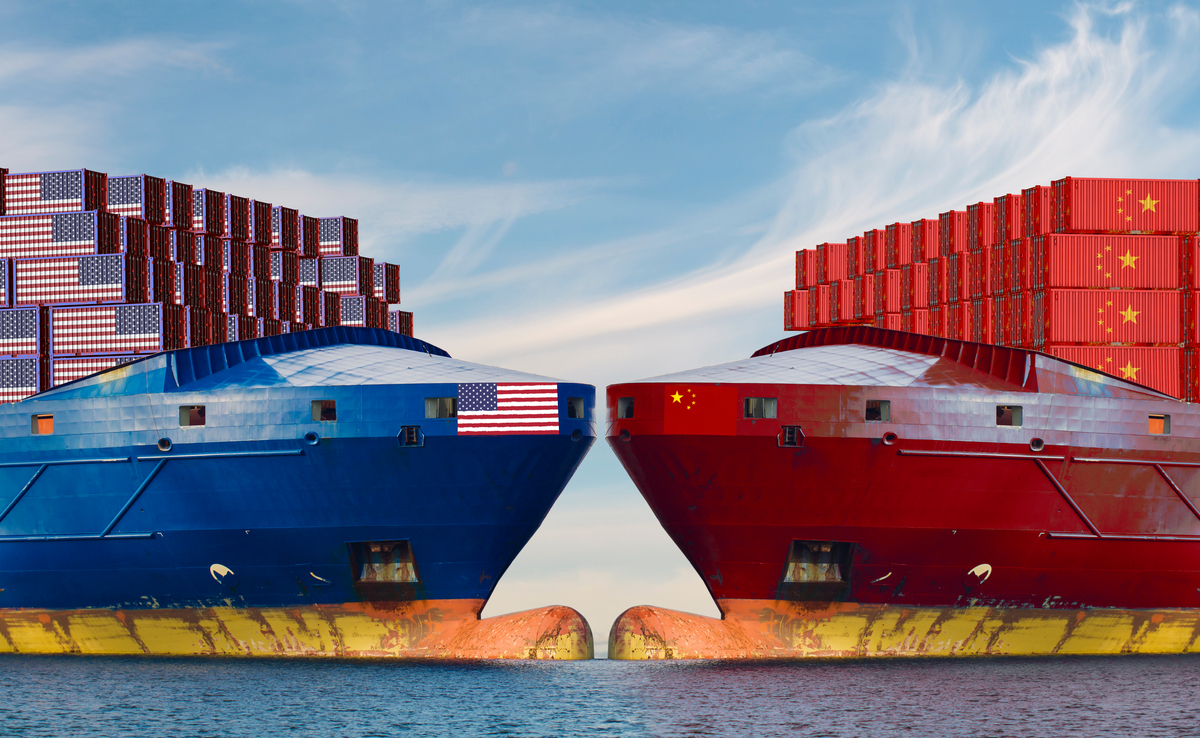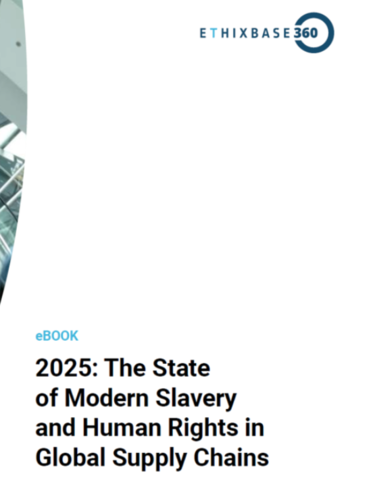The Black Swan Era: Navigating Four Disruptive Events During 2024-2025

The global supply chain faces disruptive “black swan” events as we progress through 2024. The Red Sea crisis and Panama Canal drought are already making waves, while two more potential events threaten to further shake the global supply chain’s foundations. Let’s look at these existing challenges and anticipate additional scenarios that could affect the logistics landscape.
Windward, the leading Maritime AI™ decision-making platform, provides customers and stakeholders with advanced technology solutions to navigate supply chain challenges and seize new business opportunities.
The Red Sea’s unsettling new reality
- Status: Ongoing through 2024, if not longer
- Effects: Endangers the safety of seafarers and crew, creates environmental and collateral damage and increases transit times, affecting cargo routes from East Asia to the rest of the world and vice versa. Traffic through the Suez Canal has been halved.
Two incidents intensified the conflict in March 2024: the sinking of the Rubymar, the first civilian vessel sunk in conflict since the 1980s “tanker war”, and a Houthi missile which killed three crew members aboard the True Confidence, the first fatalities since they started disrupting the Red Sea.
These events underscore the crisis’s broad impact: security risks to crew; environmental hazards following the Rubymar’s leakage; elongated transit times caused by rerouting around the Horn of Africa; and soaring shipping costs and insurance.
Windward’s analysis and insights highlight this crisis’s ramifications:
- A 203 per cent surge in shipping costs from East Asia to the US East Coast since late October, with prices reaching $6,709 per container.
- Elevated transit times and congestion across key ports, with transit from Asia to the UK nearing 30 days, exacerbating global trade disruptions.
Special report: Explore the Red Sea crisis’s impact on global trade.
Industry experts foresee the crisis as persistent, prompting a greater need for informed and proactive ocean logistics management.
The restricted Panama Canal
- Status: Ongoing
- Effects: Disrupts a critical Atlantic-Pacific shortcut, handling 5 per cent of global trade, impacting US East Coast imports and exports with increased transit times and costs.
The Panama Canal, a vital Atlantic-Pacific shortcut, has been drying up, and is unable to fully accommodate the $270 billion worth of cargo that flows through it annually since August. This has led to significant changes in shipping patterns and vessel activity. Despite additional slots offered in March, the restricted canal will continue to affect global supply chains in the coming months.
Also recommended for you:
- Windward Port Insights (February 2024)
- Special analysis: The Panama Canal’s impact on global trade
- Learn to master ocean logistics and supply chain operations
Windward’s analysis highlights a dramatic shift in maritime traffic: both container vessels and bulk carriers hit record lows in January for the number of area visits over the past two years. Area visits by container vessels owned by the six major carriers – COSCO, CMA CGM, MSC, Maersk, Hapag-Lloyd and ONE – decreased 30 per cent and bulk carriers fell by 51 per cent.

For a comprehensive analysis of the restricted Panama Canal’s impact on global trade, read this blog.
The potential US East Coast ports strike
- Status: The International Longshoremen’s Association’s six-year contract is nearing expiration
- Effects: Significant shifts have not yet been recorded. A wide-scale strike would cause collateral damage, particularly if it led to a manufacturing crisis and shortages of goods.
The looming possibility of a strike by the International Longshoremen’s Association (ILA) casts a shadow over US East Coast ports, posing a significant threat to an already strained supply chain. This impending labour dispute injects further uncertainty into the maritime logistics landscape, prompting shippers to reevaluate their routing strategies in anticipation of potential service interruptions.
With the ILA’s master contract set to expire on September 30, and a pivotal deadline of May 17 for local contracts to be in place for master agreement negotiations, the maritime industry is on edge. Despite these approaching deadlines, Windward’s February Port Insights revealed no significant shifts in TEU capacity moving away from the East Coast. This observation underscores the maritime community’s strategic wait-and-see stance in the face of potential service interruptions.
Trump to raise Chinese goods tariffs by at least 60 per cent if re-elected
- Status: Current tariffs, established during Trump’s first term, still in place
- Effects: Indications show logistics firms already leveraging Mexico as a tariff-exempt hub for Chinese manufacturers to dodge tariffs.
The possibility of a major black swan event is on the horizon in the US political arena. Former President Trump announced he intends to hike tariffs on Chinese imports to over 60 per cent if he wins the election. This unprecedented rise could critically disrupt the Trans-Pacific trade corridor, necessitating a comprehensive strategic adaptation by all players in the maritime logistics sector.
Signs of the threat of this looming tariff increase’s effect are already visible, with a reported 15 per cent surge in shipments entering the US from China via Mexico. This trend is due to Chinese entities setting up bases in Mexico, or using its ports to sidestep US tariffs. Should further restrictions on Chinese goods materialise, the reliance on Mexico as a strategic intermediary in global trade is expected to intensify.
Black and white clarity on black swan events
Ocean freight disruptions seem to be accelerating and becoming the new normal. The actionable visibility and agility provided by an AI system have proven to be critical for navigating these crises. Click here to learn how Maritime AI can boost your operations and create new business opportunities for your business.
Who is Windward?
Windward (LSE: WNWD) is a leading Maritime AI company, providing an all-in-one platform to accelerate global trade. Windward’s AI-powered decision support and exception management platform offers a 360-degree view and enables stakeholders to take real-time action to mitigate supply chain risk, create new business opportunities and make predictive intelligence-driven decisions to achieve business and operational readiness.
by Daniel Nachum, Product Marketing Manager, Windward

Business Reporter Team
Most Viewed
Winston House, 3rd Floor, Units 306-309, 2-4 Dollis Park, London, N3 1HF
23-29 Hendon Lane, London, N3 1RT
020 8349 4363
© 2024, Lyonsdown Limited. Business Reporter® is a registered trademark of Lyonsdown Ltd. VAT registration number: 830519543





